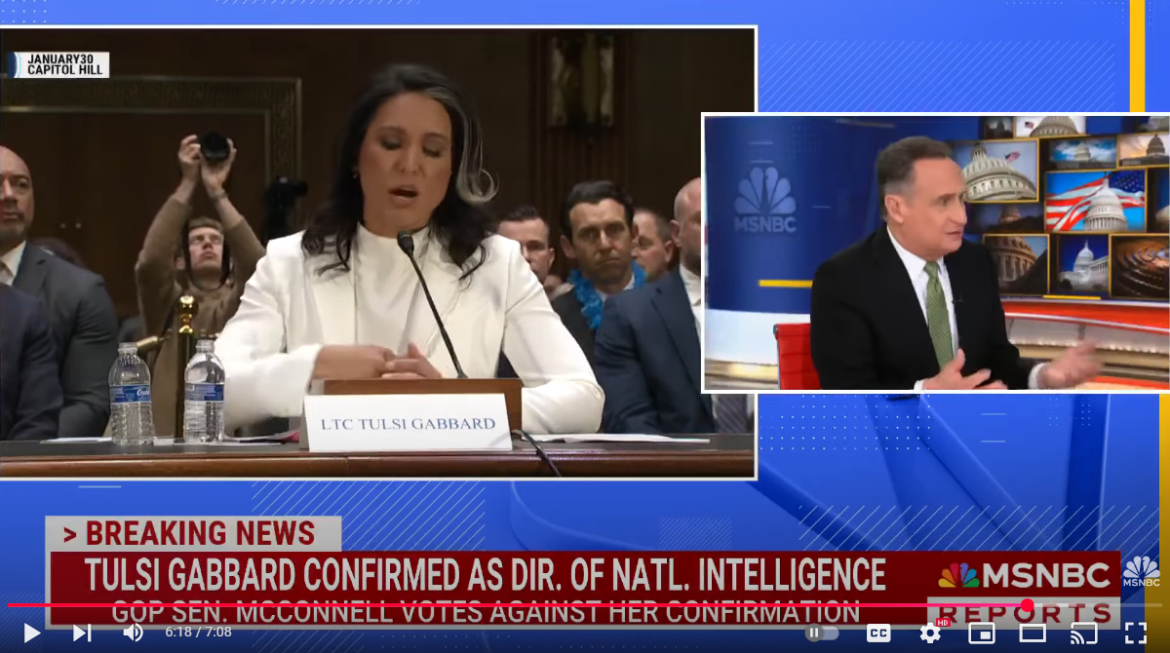Tulsi Gabbard is officially confirmed as the next Director of National Intelligence (DNI) following a highly contentious Senate vote. The former Democratic congresswoman from Hawaii secures her position with a narrow 52-48 confirmation, marking a significant shift in leadership at the helm of the U.S. intelligence community.
Gabbard’s confirmation comes amid heated debate over her past foreign policy positions and criticisms of U.S. intelligence operations. Throughout her political career, she has challenged conventional foreign policy narratives, called for an end to regime-change wars, and supported greater transparency within the intelligence community. Her nomination by President Donald Trump was seen as a bold and unconventional choice, reflecting the administration’s desire to reshape national security strategies.
One of the most striking aspects of the confirmation vote is Republican Senate Minority Leader Mitch McConnell’s opposition. McConnell, known for his hardline foreign policy stance, expresses concerns over Gabbard’s past engagements with Syrian President Bashar al-Assad and her skepticism toward U.S. intelligence reports regarding Russian interference in elections. Despite these concerns, Gabbard secures enough votes to be confirmed, thanks to a mix of support from Republicans aligned with Trump and a few centrist Democrats who see her as a pragmatic leader.
During her confirmation hearings, Gabbard promises to bring greater oversight to intelligence agencies, curb mass surveillance on American citizens, and push for reforms that prioritize national security without overreach. She also pledges to refocus intelligence efforts on countering China’s economic and technological influence, cyber threats, and emerging threats in artificial intelligence.
Gabbard’s confirmation signals a dramatic shift in the intelligence community’s leadership, as she replaces Avril Haines, who served as DNI under the Biden administration. Her appointment marks the first time a former Democratic lawmaker has taken on a high-profile role in the Trump administration, highlighting the unconventional alliances forming in Washington.
As Gabbard assumes her role, the intelligence community braces for potential internal shakeups, with reports indicating that she may seek to restructure certain departments to enhance efficiency and limit political bias in intelligence assessments. She has also suggested that intelligence agencies should avoid being used as political tools and must instead focus on providing unbiased assessments to policymakers.
Following the confirmation, the Senate moves forward with the nomination of Robert F. Kennedy Jr. for Secretary of Health and Human Services, continuing a series of high-stakes appointments that are shaping the future of the Trump administration’s second term.
Source Links:
- Senate Confirms Tulsi Gabbard as Intelligence Chief
- McConnell Opposes Gabbard’s DNI Nomination
- Gabbard’s Plan for Intelligence Overhaul



